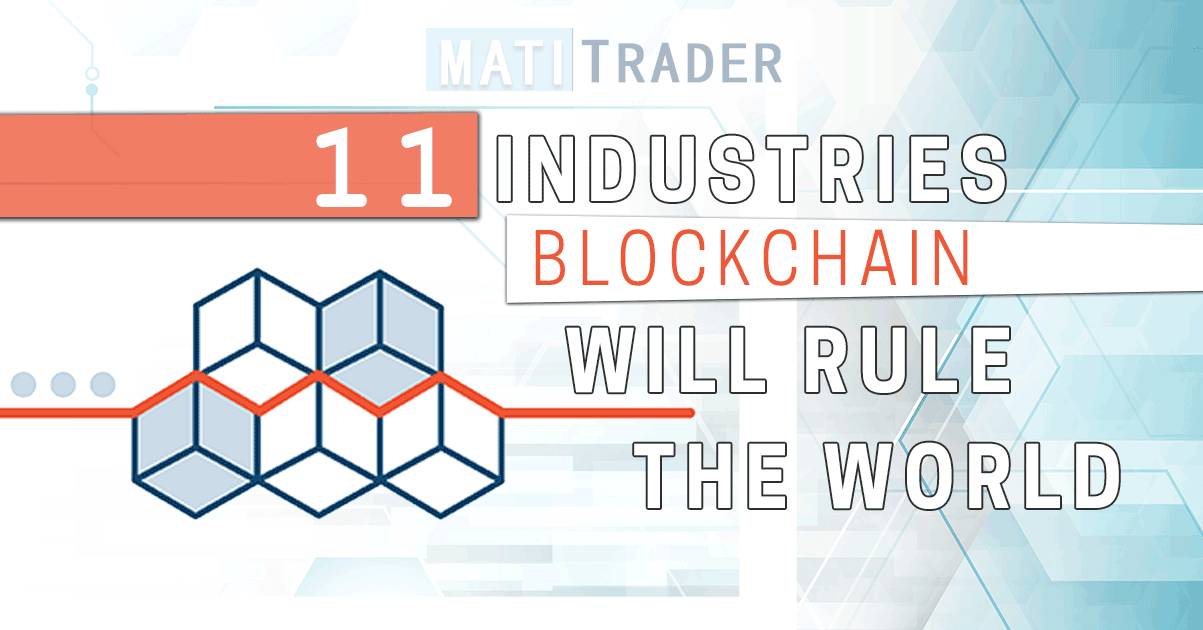11 Industries Blockchain will Rule the World
Blockchain is the one technology that allows people to create unique, specific products, programmes and services online.
Instead of downloading a programme, app or making a transaction on a regulated centralized system like Android or IOS, you’ll use a decentralized system to do everything you currently do with the internet.
These ideas on how blockchain will disrupt industries will blow your mind.
#1:
Voting

Blockchain and online voting may one day be the main platform where everyone can take part.
Think about it. No more standing in a line, casting votes to a local authority in the hopes that your vote will be counted.
Having a decentralised system for voting can result in:
• No voter manipulation and fraud
• One vote per identity
• No external influence
• Full transparency
• Results within seconds
• No foul play
Once a vote is added to the ledger, it cannot be tampered with, removed or duplicated.
And so having a blockchain-based-online voting platform, where everything is updated, in real time and with full transparency – could soon be a reality for elections…
#2:
Stock market trading & investing

Blockchain could one day take over trading institutions and the financial industry as we know it.
There will be no more use for brokers and market makers, as everything will be electronic.
Investors and traders will choose the blockchain path to:
-
Take control of their own portfolio 24/7
-
Extra security and privacy which cannot be accessed by anyone
-
Facilitate trades without any costs, commissions or fees
-
Result in much faster and more efficient transactions
-
Improve liquidity and volume with financial markets
-
Reduce fraud and manipulation
-
Trade 24/7 markets including Forex, stocks, indices and cryptos
-
Speed up deposits and withdraws within seconds
-
Rely less on third parties
#3:
Social media and internet

Imagine a Facebook, Tik Tok, YouTube, Instagram or even Twitter that nobody owns.
With blockchain and dApps (Decentralised Apps), they would be completely immune to attempts to manipulate, regulate, spy or even shut them down.
#4:
Buying assets, goods and services

Anything of value that can be tracked, traded and recorded on a blockchain network, will allow transactions in one form or another.
In fact, we already have individuals and institutions that are buying, selling and exchanging crypto-currencies (i.e. Bitcoin) for tangible products such as vehicles, property, investments and other assets.
An asset can also be intangible such as patents, royalties, intellectual property, copy rights and branding.
Also, there are blockchain advantages including:
• Lower costs
• Less risk and danger
• Guaranteed transactions
• Accurate evaluations
#5:
Currencies
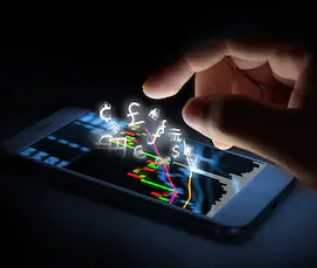
As you’ve seen, crypto-currencies and forms of exchange – can be created and exchanged simply from the digital ether.
The decentralised crypto-currencies will continue to provide a form of exchange for products and services as an alternative to general currencies.
#6:
Music, books and movies
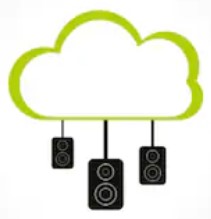
Since the days of Napster, Kazaa and Limewire, entertainment companies have tried everything to prevent piracy from wiping out their revenue.
Just a few years later, and a single copy of a song, movie or programme could be distributed around the world within seconds.
Blockchain and smart contracts technology could create a decentralised and accurate database of rights of ownership. It could also put an end to piracy and other forms of un-authorised copyrighting.
The blockchain transaction will be made in a secure and transparent manner in a way the royalties will be distributed to the owner in a fair and an instant payment process.
#7:
Banking
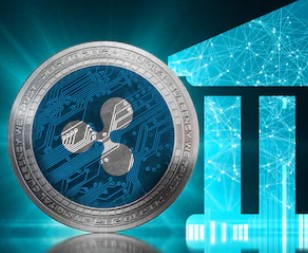
Blockchain will disrupt the entire banking system.
By having a decentralised banking network, we won’t have to worry about a bank crisis ever again.
The reasons for a blockchain banking system include:
-
Lower transfer fees
-
Less costs and taxes
-
Instant processing time
-
High security
-
No third party
-
Quick overseas transfers
-
Never go offline or off the system
Just so you know, all of your banking transactions take place in a digital online wallet.
A wallet is the place (programme) where you can store and make transactions. When you have access to your wallet you get two keys.
A private and a public key.
The private key is a special digital idea or a code of numbers and letters, given to each user that links to their account.
This is the code to access and take control of your account where you can transfer funds out of it. Here’s an example of a private key.

A private key is like having a credit card with your credit card number, expiration date and security code.
With this information, you can spend as much funds as you like. That’s why you should never share this private key and never lose your private key.
The public key is the code (numbers and letters) that is fully available to the public.
Below is an example of a public key:
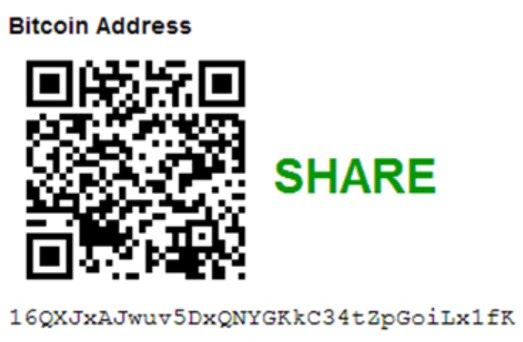
A simple analogy of a public key is having someone’s bank account number. Anyone with this number can technically send money into your account.
NOTE: The public key is known to the public. If you lose your public key, you can find it again with your private key.
Just remember to never lose your private key.
So with blockchain banking you can imagine how being able to deposit, withdraw, exchange and transfer money, will make things extremely efficient and secure – Don’t you think?

A private key is like having a credit card with your credit card number, expiration date and security code.
With this information, you can spend as much funds as you like. That’s why you should never share this private key and never lose your private key.
The public key is the code (numbers and letters) that is fully available to the public.
Below is an example of a public key:

A simple analogy of a public key is having someone’s bank account number. Anyone with this number can technically send money into your account.
NOTE: The public key is known to the public. If you lose your public key, you can find it again with your private key.
Just remember to never lose your private key.
#8:
Games

The next streamed and online game, may be through a decentralised operation – also known as Crypto-gaming.
This will allow gamers, programmers and other entities to improve and build on the game to enhance the experience for all users.
By having an source place for gaming there’ll be opportunities to:
• Build on continuously and expand the game
• Create social network of like-minded gamers
• Have more stable, secure and transparent operation
• Not have to worry about crashes, manipulation and shutdowns
• Offer financial benefits for gamers i.e. customising and selling digital collectibles, art or created virtual worlds.
#9:
Crowd funding

Crowd funding has become the new alternative to traditional venture capital, bank funding and self funding.
The issues in the past have been where the banks require an existing business with good revenue, venture capitalists need proof that the business is a success and the costs are exorbitant.
Soon there’ll be an era where blockchain will take over all three forms of funding.
Blockchain will facilitate crowd funding when it comes to funding for projects, businesses, charities and other causes.
The beauty about blockchain crowdfunding is that there’ll be:
• Enforced funding terms
• Instant money returns if the criteria is not met
• Lower transaction costs
• No middleman
• Decentralised platform
• Automatic actions according to the criteria stated
• Better funding for ICOs (Initial Coin Offerings)
And once the terms or funding is met and the transaction is a success – the money will be automatically distributed to the cause without any human error.
#10:
Health care

Blockchain technology will one day be able to keep personal medical file information private and safer that with a central authority.
You’ll finally be able to access your medical information with a click of a button and distribute it only to those you trust.
With blockchain, healthcare will benefit in ways that you’ll be able to access:
• Medical information which can’t be tempered, hacked or removed
• Pharmaceutical companies will have a record of past, present and future prescription medicines to collect and deliver to
• A list of personal health records of diagnoses, illnesses and private health information
• Revolutionise insurance claims and reduce fraud and adjust quotes for members according to their current health situation
#11:
Supply chain management


